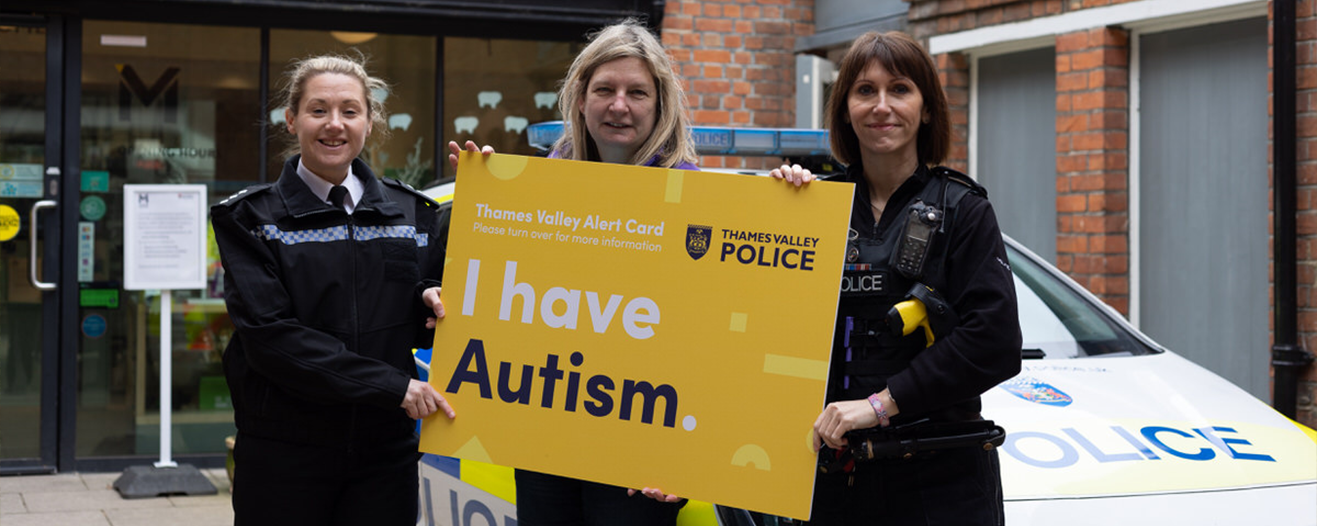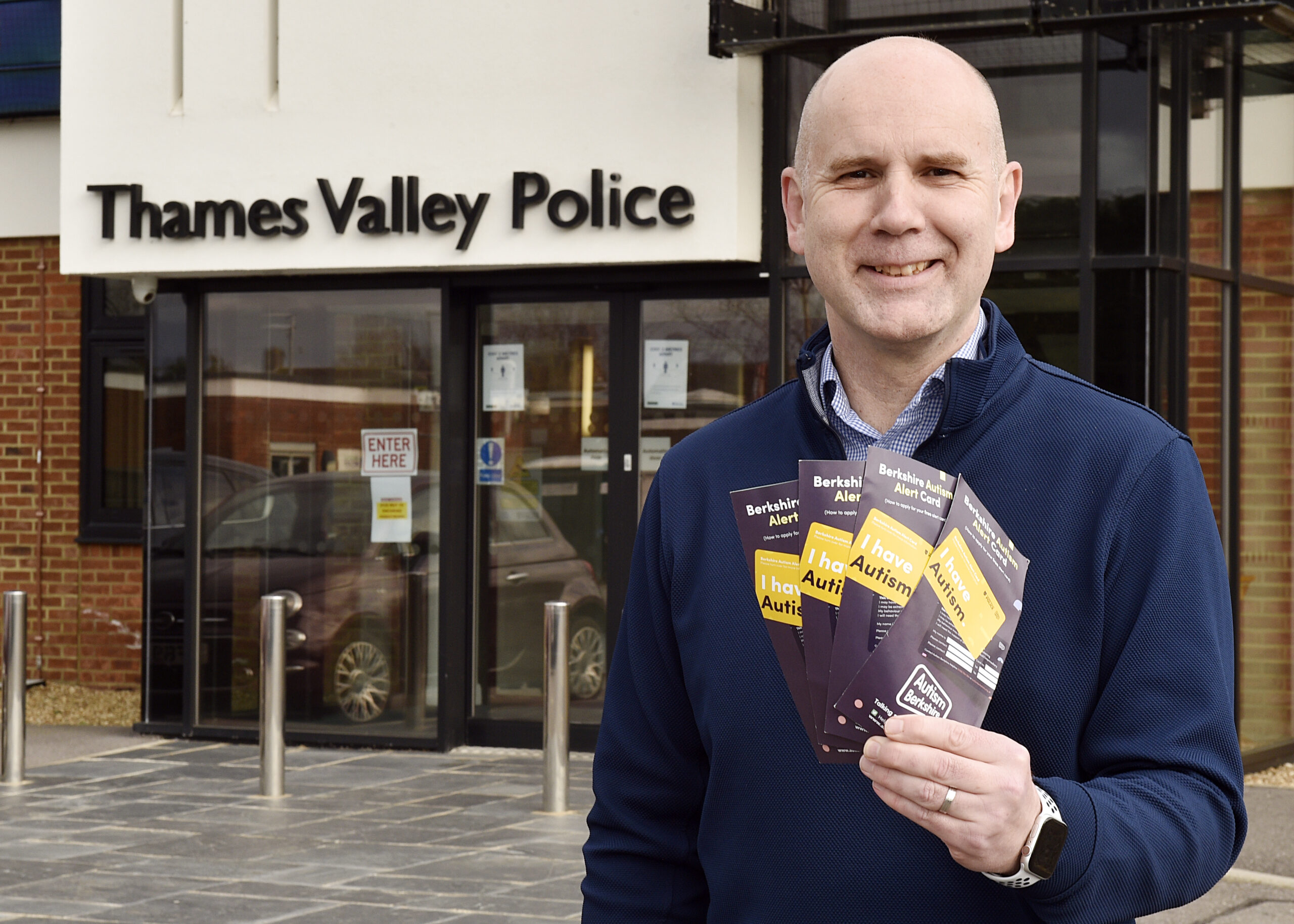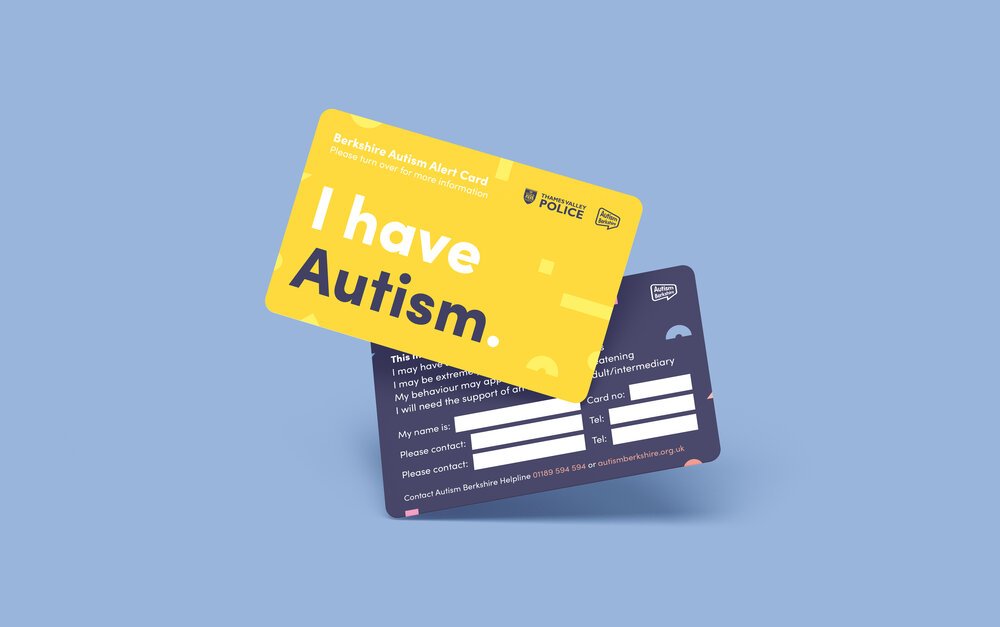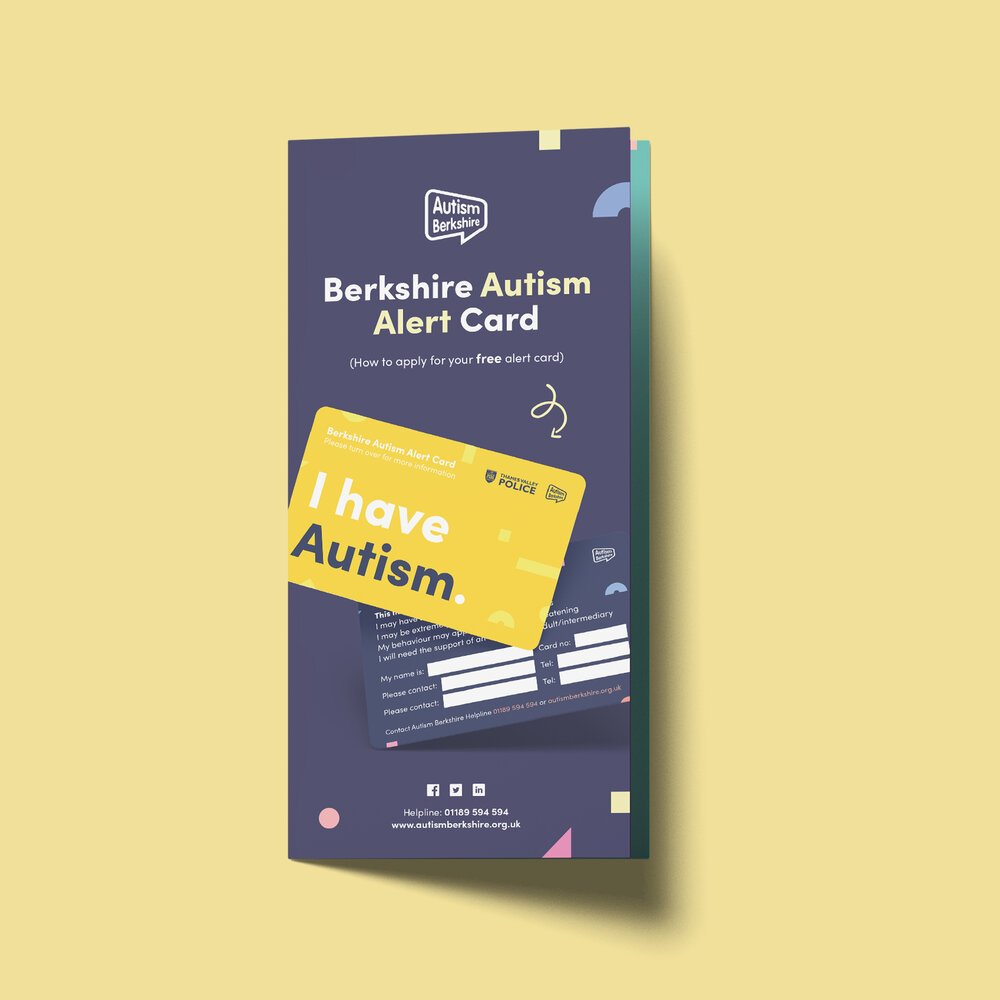Autism Alert Card: Autism Berkshire

A new initiative
With the new card, cardholders – or the person applying their behalf, such as parents and support workers – can now choose to share some information about their autism with the police. Examples could include someone’s high levels of anxiety in stressful situations; sensory issues, such as reactions to loud noises or bright lights; and how best to help an autistic person who is having a meltdown or shutdown.
The aim is to help police officers understand how autism may affect an individual’s behaviour if they need assistance; they become a victim of crime; are a witness; or are taken into custody.
If someone opts to share information about their autism when applying for or renewing an alert card, the details are held in a secure police database and can be accessed when officers are shown the card. Police officers in Berkshire are being trained about the card in a rolling programme, starting in the Reading and Bracknell & Wokingham policing areas, with West Berkshire, Slough and Windsor & Maidenhead to follow. It is hoped that similar autism alert card schemes will be introduced in future to cover the rest of the Thames Valley.

The final deliverables
The materials provided included the redesigned alert card, and promotional materials to support the card. As the sole designer on this project, I had full creative control and explored shape, line and colour in a fun way.



What people are saying
We have already had a really positive reaction from cardholders and their families to the new design – and to the opportunity to provide some extra information that can help police provide appropriate support to a cardholder. We are delighted.— Jane Stanford-Beale, CEO of Autism Berkshire
When they [a person with autism] sign up to a [new] Berkshire Autism Alert Card, it is a positive step towards ensuring we can have the most meaningful interaction. This helps to break down barriers to communication.— Detective Chief Inspector Simon Steel, Thames Valley Police